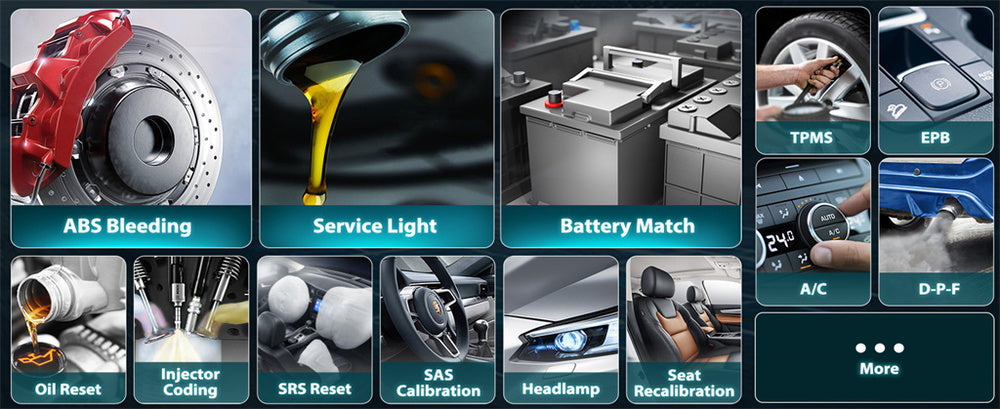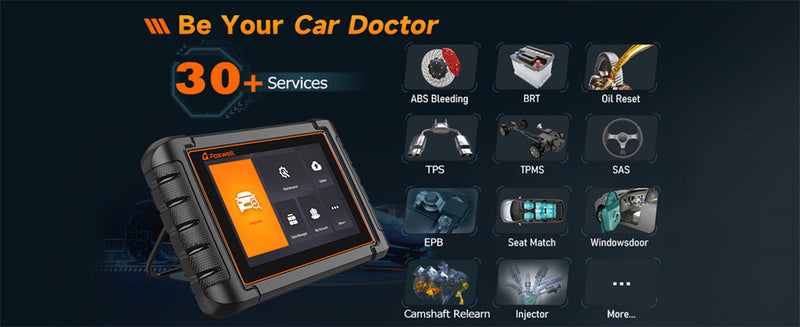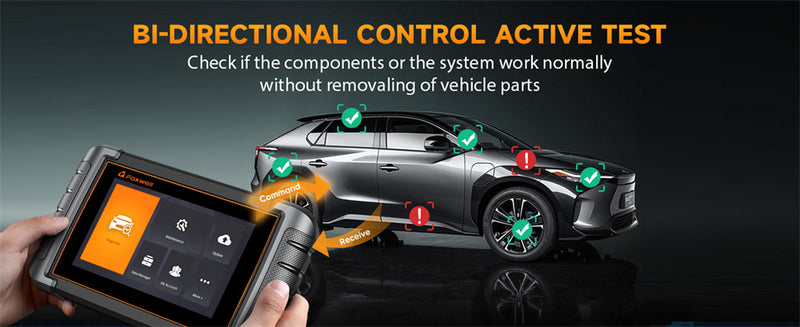Have you ever been frustrated when communicating with someone, only for them not to respond in kind?
Well, the same can happen with your car! When your diagnostic scanner suddenly goes silent and refuses to connect with its PCM (Powertrain Control Module), you may be left in the dark about what's really going on under the hood and guessing as to its condition. But why does this occur, and how can you resolve it?
Here, we'll discuss what the PCM does for your vehicle, why it may no longer communicate with its scanner, and how you can restore its functions if things become problematic—before that check engine light becomes an even greater source of concern.
What is a PCM and What Does It Do in Your Vehicle?
A powertrain control module, commonly called PCM for short, is a critical component in modern vehicles. The central computer or "brain" oversees many essential systems, such as the engine and transmission. It is comprised of two individual control modules called ECM and TCM that work together to ensure your car runs smoothly and efficiently.
Here's an in-depth view of what the PCM does:
- Engine Management: The PCM manages critical engine functions like fuel injection, ignition timing, and air-fuel ratio. To do this effectively and efficiently, the PCM collects data from oxygen sensors, throttle position sensors, and more from sensors (like oxygen or throttle position sensors). It adjusts these functions in real time for maximum power while minimizing emissions and fuel consumption.
- Transmission Control: Your PCM also oversees your vehicle's transmission, controlling when and how gears change. By monitoring speed, load, and throttle position, it determines when shifting should occur for optimal performance, improving both driving experience and ensuring the transmission system doesn't suffer unnecessary strain.
- Emission Control: A properly functioning PCM helps your car meet emission standards by controlling combustion processes. It ensures your engine burns fuel as cleanly as possible by adjusting the air-fuel mixture and ignition timing to reduce harmful exhaust gases.
- Diagnostics and Error Codes: One key role of the PCM is monitoring your vehicle's health. When something goes amiss, its sensors detect anomalies, which trigger a check engine light on your dashboard. The PCM also stores diagnostic trouble codes (DTCs), which can be read with a scanner to pinpoint specific problems.
- Communication Hub: Your PCM acts as the nerve center for different systems within your car, communicating between various control modules and sensors to ensure everything runs in sync. For instance, it communicates with ABS, traction control, and other vehicle subsystems.
Your PCM is essential for keeping your vehicle running smoothly. It monitors, adjusts, and controls critical systems.
Without it, your car would struggle to operate properly. This could lead to safety issues, reduced fuel efficiency, and problems with regulatory compliance.
If the PCM malfunctions, it can cause poor performance, increased fuel consumption, or even make your car undrivable.
If something were to malfunction, it could have serious repercussions, including decreased performance levels, increased consumption, or even rendering the vehicle undrivable altogether!
If this system were ever to fail or malfunction, its effects could be significant - potentially leading to poor performance issues, higher fuel consumption rates, or even rendering the car undrivable altogether!
How Does a Faulty PCM Affect Communication With a Diagnostic Scanner?
Car Diagnostic scanners are tools for accessing your car's computer systems, including its PCM. When something is amiss with your vehicle, simply connect a diagnostic scanner via the OBD-II port (where OBD plugs in), connect to it, and read codes that identify specific issues requiring repair.
But if the PCM is defective, it may no longer communicate with the scanner, making it impossible to connect or retrieve codes - a sure sign that something's amiss. This lack of communication may indicate a PCM problem is at work.
Common Causes of PCM and Scanner Communication Failure
Just because your scanner can't connect with the PCM doesn't mean its integrity has been compromised - several other issues could also be at play, so here are some potential explanations.
- Wiring issues: Cables connecting the PCM to OBD-II ports or other parts of a vehicle could become damaged or loose, disrupting communications and the operation of OBD-II ports or parts. Frayed wires could impede normal functionality.
- Blowing Fuses: Fuses that regulate OBD-II systems may sometimes blow, cutting power to diagnostic ports and rendering your scanner inoperable.
- Dead Battery or Poor Ground Connection: If your car's battery is low or the ground connection is inadequate, the PCM could become improperly functioning and limit its ability to communicate with scanners.
- Bad OBD-II Port: If your OBD-II port has become damaged from dirt, debris accumulation, or physical wear and tear, proper communication between the scanner and the car's computer systems could be hindered, preventing adequate scanning.
These causes should be relatively easy to pinpoint and fix before concluding that a PCM failure has occurred; thoroughly check these areas.
How to Diagnose If the PCM Is at the Root of Your Issue

After ruling out wiring and fuse issues as potential causes, the next step should be evaluating whether the PCM itself may be the source of any trouble. Here is one approach you can use to assess whether or not this component could be to blame:
- Test for other symptoms: Is your car experiencing other issues, such as rough idling, stalling, or decreased fuel efficiency? These could all be indicators that something else may be going on—especially if they coincide with scanner communication issues—suggesting the PCM could be to blame.
- Try another scanner: If possible, test the car using another diagnostic scanner. Sometimes, the scanner has issues other than its PCM counterpart; if the problem continues across several scanners, it is more likely an issue with its PCM component.
- Examine Error Codes: Even when connected, a PCM that's malfunctioning could still provide incomplete or confusing error codes that do not correspond with what's going on with your vehicle. Pay close attention to any unusual messages displayed by the scanner that don't make sense with what's going on with your car.
- Test the PCM Power Supply: Use a multimeter to check that the PCM is receiving power. If not, this could explain why it's not communicating with the scanner. In such instances, the issue might lie with its power supply rather than its physical presence in your car.
Solutions: How to Fix or Replace a Faulty PCM
Once you've confirmed that the PCM is at fault, various solutions are available to restore its function and get your vehicle back into working condition.
- Reflashing the PCM: Reprogramming or "reflashing" your PCM may be an affordable and time-tested solution to communication issues. It provides a cheaper alternative to purchasing an entirely new unit. This process can often be performed at dealerships or by experienced mechanics.
- Replacing the PCM: If your PCM has become irreparably damaged, replacing it may be the only solution. Unfortunately, replacing one can be expensive and typically requires professional services for proper installation and programming of the replacement unit.
Installing and programming yourself could create further complications and lead to further costs for you and your vehicle.
- Verify Warranty Coverage: Even with newer cars, PCMs may still be covered under warranty; always consult your manufacturer before spending money on repairs or replacements.
Estimated Costs and Time Frame of PCM Repairs
Repair costs and timelines can differ significantly depending on the nature of your problem, but here is what to expect in terms of costs and timelines for PCM repairs:
- PCM reflash: Reflashing your vehicle's PCM typically costs $100-250, depending on its type and location, and takes one hour.
- PCM Replacement Costs and Installation Times: Depending on its accessibility in your car, replacing a PCM typically costs between $500 and $1,500, factoring in labor and programming fees. Installation can take several hours or a full day, depending on its position within its surroundings.
Conclusion
If your scanner cannot communicate with your car's PCM, it can be frustrating, but don't panic! Start with basic checks like checking wiring, fuses, and OBD-II port connectivity; once these have all been checked out successfully, focus on testing the PCM itself and deciding whether it needs to be reflashed or replaced.
Your PCM plays an integral part in how your vehicle operates, so if it becomes defective, it must be addressed quickly to prevent further issues. Repairs can either be handled by yourself or left in the hands of professional mechanics; either way, knowing what's happening under the hood will save time, money, and hassle in the long run.
FAQs
Why is my OBD scanner not picking up codes?
If your OBD scanner isn’t picking up codes, it could be due to a blown fuse, loose wiring, a faulty OBD-II port, or even a malfunctioning PCM that’s unable to communicate with the scanner.
What would cause lost communication with ECM/PCM A?
Lost communication with ECM/PCM A can be caused by poor electrical connections, a faulty ground, damaged wiring, or a failing PCM/ECM itself.
How do I know if my PCM is bad or ECM?
Signs of a bad PCM or ECM include issues like the check engine light staying on, erratic engine behavior, rough idling, or transmission problems. Using a diagnostic tool or consulting a professional mechanic can help confirm which module is faulty.





Leave a comment
This site is protected by hCaptcha and the hCaptcha Privacy Policy and Terms of Service apply.